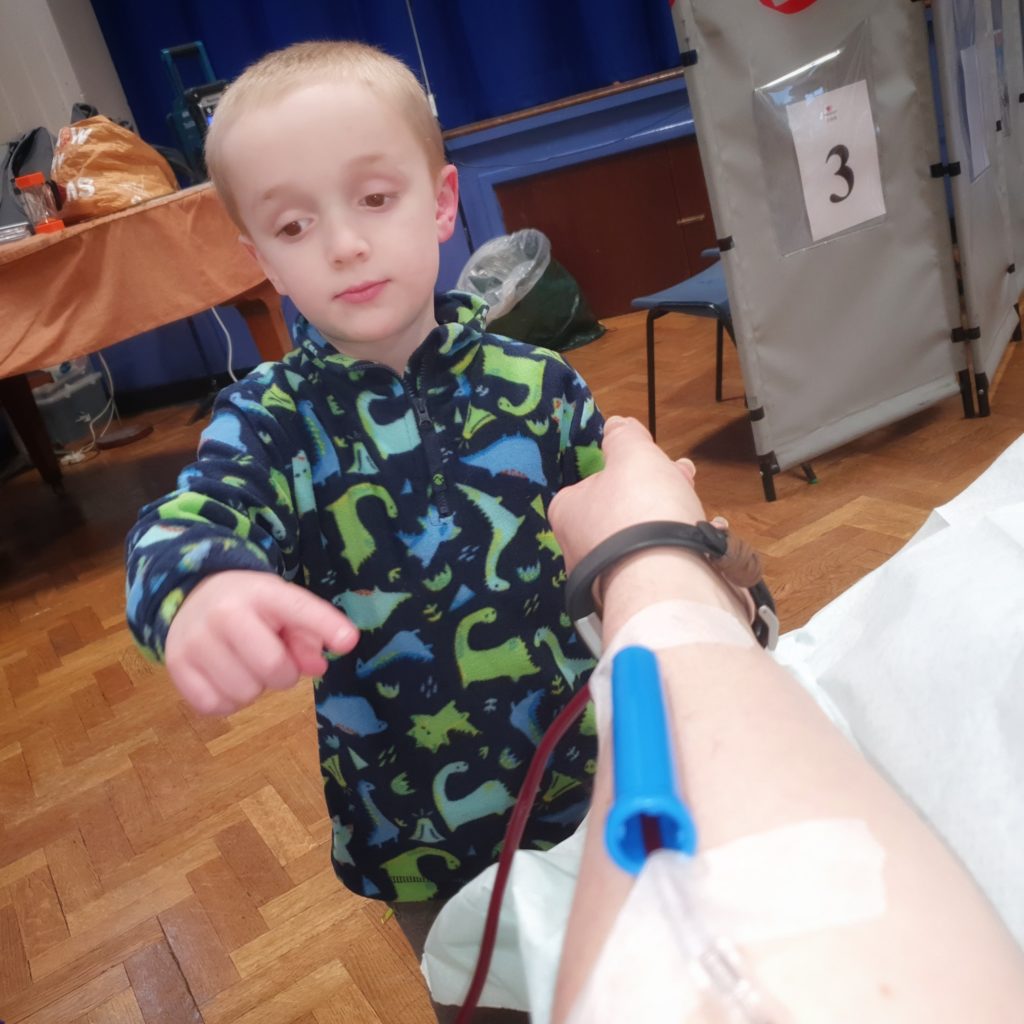When I was a child, I remember my parents talking to me about giving blood and how important it was. My mum had donated regularly up until she received blood transfusions when I was five. My dad, although being utterly petrified of needles had also donated. My mum found it really frustrating that she was no longer able to donate, so the message I got from them was always if you can donate, do it.

I didn’t donate blood until after I’d had children. I think, despite my parents message, it was just something that never came up. I think we all go through that selfish period in life when we don’t really think beyond our own needs or that of our immediate friends and family. I didn’t even know what blood group I was.
Blood type
I didn’t find out my blood type until I was pregnant with my first child. I discovered then that I was O negative. It is estimated that only 7% of the population is O negative.

O negative is the most common blood type used for transfusions when the blood type is unknown. This is why it is used most often in cases of trauma, emergency, surgery and any situation where blood type is unknown. O negative is the universal blood type, anyone can receive this blood. Although O negative blood type can only receive O negative blood.
With this knowledge I felt an overwhelming duty to donate my blood on a regular basis. How could I not? Anyone could receive my blood, I could help people who desperately needed it.
Explaining to the children

I’ve always told the children I give blood. I’m rarely away from them for a start, so they always want to know where I’m going. I would always say that I was going to let the nurses take some of my blood so they could give it to someone who needed it, to help them get better.
I’ve never taken them with me, just talked about it, but recently I had to take them along. I was a little concerned they would find it upsetting but I couldn’t have been more wrong.
They sat with me whilst I had my blood taken, they asked the nurses questions, they got up close and had a good look and then when we were all done, the nurse let them hold the bag of blood. They decided it was warm and heavy. The nurse told them the blood would be sent off to help someone who was poorly.
They were excited to check out the snacks on the snack table after that – of course, and they now keep asking when we are going back, probably for the snacks, but the process of coming with me is still an education and an on-going conversation about why it is so important to help others.
Do you donate blood? Have you ever taken your children along? If you are interested in finding out more, check out https://www.blood.co.uk/ if you are in England and https://www.welsh-blood.org.uk/giving-blood/ if you are in Wales!


1 comment
Thanks for this as I am one of the patients who could not live without transfusions every 4 weeks-I’ve has 180.